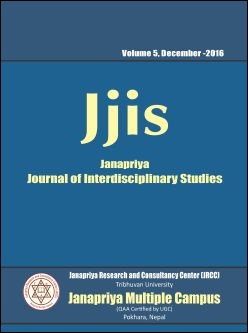Neonatal Hyperbilirubinemia: Hospital Based Study in Western Region, Nepal
DOI:
https://doi.org/10.3126/jjis.v5i0.17841Keywords:
Hospital based study, Hyperbilirubinemia, Neonatal, NepalAbstract
Hyperbilirubinemia is the common cause of neonatal morbidity and mortality. The aim of this study is to identify neonatal hyperbilirubinemia and its early outcome. Retrospective data review was carried out in the Neonatal Care Unit and medical record section of Western Regional Hospital (WRH) for the year 2013. The data were analyzed and interpreted by using descriptive and inferential statistics through the computer program SPSS 20 version and presented in tables. Findings revealed that out of 815, 17.8 percent were the hyperbilirubinemia, 60 percent were male, mean age = 6.61(SD=4.55), 47.6 percent were Brahmin/ Chhetry ethnicity, 55.2 percent were from rural residence and 69.6 percent were admitted from emergency/OPD of WRH. Regarding the duration of stay mean = 3.75(SD=2.02), 86.2 percent neonates were improved at discharge and 0.7 percent expired. There is statistically significant relationship between residence, and source of admission with early outcome of neonates at discharge (p<0.05). The majority of the neonates admitted in the hospital were improved at discharge. Therefore early recognition of neonatal hyperbilirubinemia is an important public health concern.
Janapriya Journal of Interdisciplinary Studies, Vol. 5 (December 2016), page: 75-82




